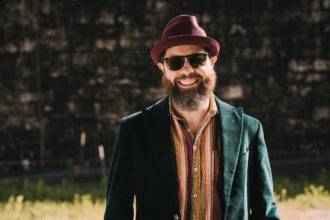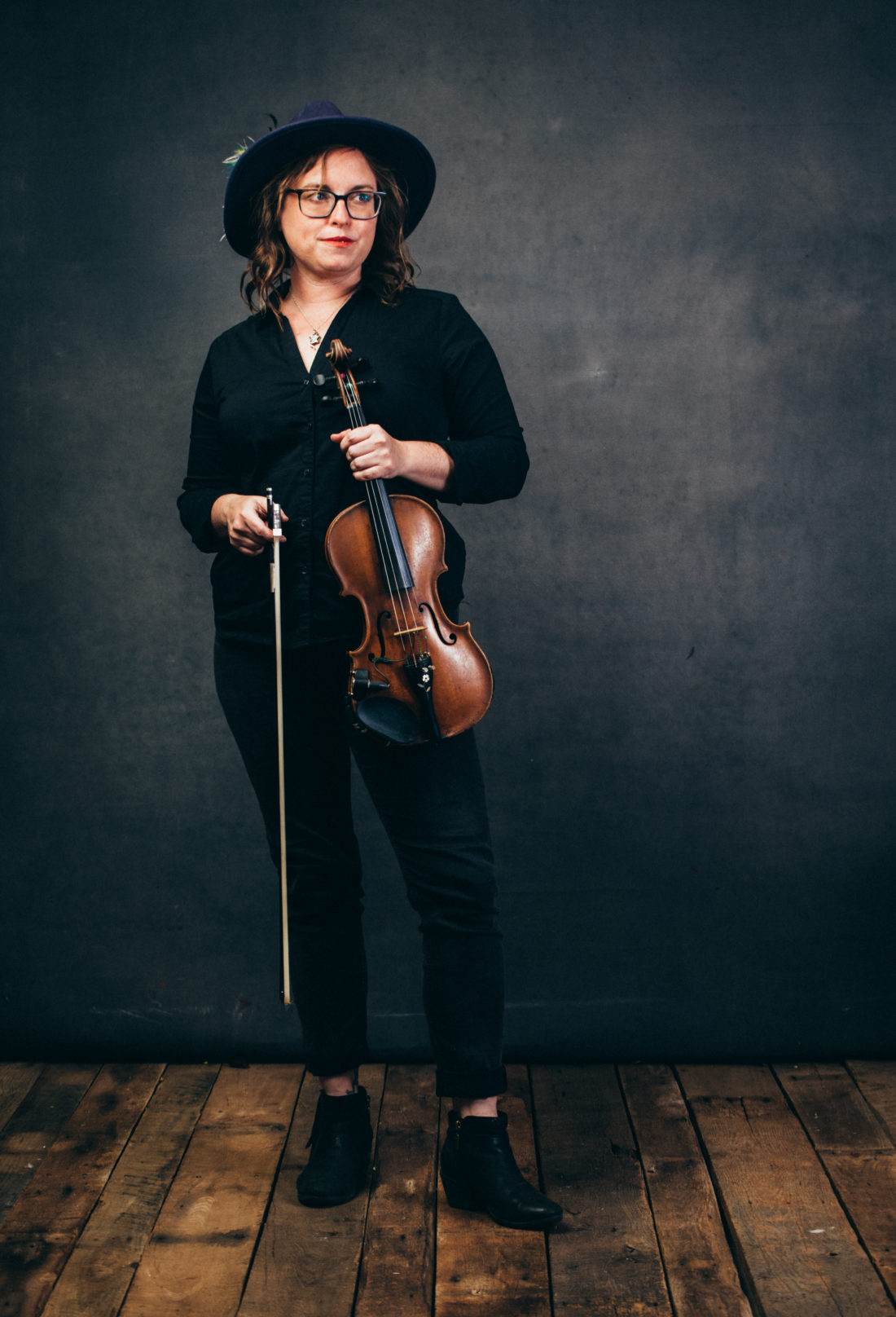For many people, bouts of ringing in their ears go away quickly. But for Cactus, the Asheville-based hip-hop artist also known as Secret Agent 23 Skidoo, the ringing hasn’t stopped for over a decade.
“It never goes away, and it drove me crazy when it started,” he says. “But I’ve learned to adapt, and now it doesn’t mess with me too much — it just means that when things are quiet, it’s there waiting for me.”
In addition to tinnitus and other auditory woes, musicians are prone to various health issues tied to their profession. Xpress spoke with a few area creatives currently dealing with on-the-job ailments, each of whom was eager for others to learn from their experiences and avoid similar mistakes.
Gray areas
Cactus’ tinnitus was initially triggered during a stressful period in his life, which the musician says is common for the ailment. But another major contributor to his 10-year struggle was his previous resistance to wearing earplugs onstage. As a 20-year-old in a loud, raucous band, Cactus remembers feeling he was “immortal and invincible” — a youthful delusion that he hopes serves as a cautionary tale to other would-be invincible types.
“At night, I sleep with a fan on, and I’ve got a great white-noise generator, the Rain Rain app, on my phone that I use when I read books or meditate,” he says. “The only time it really gets on my nerves is when I’m in nature and I’d like to have a peaceful, quiet moment, but can’t.”
To date the most effective treatment Cactus receives is an occasional professional ear cleaning, as impacted wax intensifies the ringing. He’s experimented with switching up his diet, too, noticing that coffee and alcohol can amplify the disturbance.
“Also, I’ve done a few sessions of hypnosis for it, as well as learned to meditate in a more focused way,” he says. “The trick, as crazy as it seems, is learning to be calm and not focus on it. Focusing on it increases stress, which increases the ringing, and it becomes a feedback loop, so you have to get in control of your mind and your stress.”
Like Cactus, healthy changes have been a major part of Lyndsay Pruett’s life over the past seven months. The local violinist first noticed an ache in her wrist in mid-March 2021, following one of her first gigs back since the onset of the pandemic.
“Turns out it’s a particular type of tendonitis called De Quervain’s tenosynovitis — inflammation of the tendon that powers your thumb,” Pruett says.
After consulting with a local hand doctor, she received a corticosteroid injection in June.
“Two weeks after the first shot, I thought my wrist was better and resumed sleeping without a brace and played a bunch of gigs back to back,” Pruett says. “About a week later, the pain started again, a little more intense than before. When I went back to the doctor, he gave me a second injection that was extremely painful.”
Surgery was proposed by Pruett’s doctor if her condition didn’t improve. Hesitant to go under the knife amid a busy tour and festival schedule, the violinist sought alternative options. Soon thereafter, she began having regular sessions with local neuromuscular massage therapist Darren Cadwell and later added treatments with physical therapists Taylor Leiby and Colin Hunt at Movement for Life.
Progress is slow, though Pruett feels she’s getting stronger. “I’m learning a lot about what it’s like to have limitations and having to listen to your body,” she says. “Physical therapy seems to require working with a lot of gray areas. There’s no simple prescriptive approach, so I have to listen and decide how much to push myself and ask a lot of questions.”
Being intentional, Pruett continues, is imperative. But it’s also the greatest difficulty. “When you’re used to just getting out there and playing every day of your life, that’s very challenging but entirely possible.”

Like an old paintbrush
Such injuries are common for local chiropractor Brent Myers, who’s worked with a steady stream of musicians and other artists looking to recover from aches and pains.
“Primarily, it’s hand, arms, neck, upper back — that kind of whole unit,” he says. “I don’t see as much in the lower body.”
Myers likens many of these muscle injuries to an old paintbrush whose bristles — which he says resemble human muscle fibers — have stuck together due to not being cleaned. As such, when a musician holds an instrument for an extended period of time, certain muscles get neglected and lose the ability to slide and move.
“When muscle fibers get all stuck together, you get these overuse, repetitive motion type of injuries,” Myers says. “If there’s a nerve in there, it can get pinched or irritated and that can cause a problem, or it can just be that this chronic position has caused all these muscles to be all wound up.”
Through massage, chiropractic treatment and instilling the importance of preventive exercises in his clients, Myers and other medical professionals have helped numerous area artists keep pain at bay and enjoy long, successful careers.
Preventive measures
In line with Myers’ emphasis on keeping muscles loose, Caitlin Krisko makes it a priority to stretch prior to each gig. But it’s the commitment to protecting her voice that’s resulted in her rock band Caitlin Krisko and The Broadcast never having to cancel any of its nearly 2,000 shows over the past decade due to vocal issues.
Though the Asheville-based frontwoman feels fortunate to own that spotless record, she’s quick to note that luck has nothing to do with it. Vocal training remains a major part of her routine. “Vocal warmups are also superimportant, but something that people don’t really realize is that a consistent sleeping environment can really affect your vocal health, too,” she says.
When Krisko tours, she brings a particular pillow with her so that her neck and head are angled at a specific position each night. And, unless she knows she’ll be in a naturally humid climate, she also brings a humidifier.
“We’re talking traveling through 10 countries in Europe, hauling a humidifier up 10 flights of stairs because I have to have it in my room every night,” she says. “When you’re sleeping in an environment that’s really moist and humidified, you’re not waking up with a dry throat or respiratory system. And especially during the winter months, you’re creating a really nice, warm, moist, regulated environment for yourself.”
Furthermore, after noticing how drinking alcohol gradually depleted her vocal strength, Krisko dropped the habit and switched to water and tea. Along with proper hydration, she’s also seen the benefits of checking in with her voice each day to monitor what she’s capable of for the next performance.
“There are nights where I’m like, ‘I’m at a 10 right now. I can soar.’ But then three weeks into a tour, I might have a night where I’m kind of tired,” she says. “I don’t think there’s anything wrong with making adjustments in your melodies — maybe adjusting certain big notes so that you can allow yourself to have vocal stamina.”
Likewise fully aboard the self-preservation train, Cactus recommends musicians get in the habit of wearing in-ear monitors or earplugs onstage and avoiding “insanely loud noise in general,” be it at shows or industrial settings.
“Take it seriously, because you might not have a problem right away, but over time, the damage can stack up,” he says. “I’ve learned that I am not immortal and invincible, and that my body is irreplaceable. Health is important, and you can’t buy it. You have to find balance and maintain it. I’ve also learned how to let stress go. Sometimes, at least — I’m still working on that one.”




Before you comment
The comments section is here to provide a platform for civil dialogue on the issues we face together as a local community. Xpress is committed to offering this platform for all voices, but when the tone of the discussion gets nasty or strays off topic, we believe many people choose not to participate. Xpress editors are determined to moderate comments to ensure a constructive interchange is maintained. All comments judged not to be in keeping with the spirit of civil discourse will be removed and repeat violators will be banned. See here for our terms of service. Thank you for being part of this effort to promote respectful discussion.